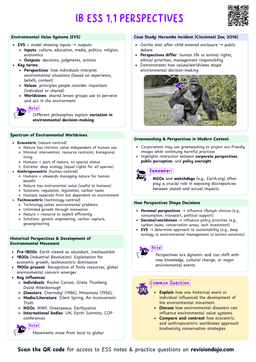- Many countries measure development by looking primarily at economic performance, especially Gross Domestic Product (GDP).
- However, GDP ignores the value of natural systems and does not account for environmental degradation.
- Overreliance on GDP as a measure of “progress” can lead to unsustainable development because growth may come at the expense of ecosystems and the future well-being of societies.
Gross Domestic Product (GDP)
GDP
Gross Domestic Product (GDP) is a common indicator of economic development that measures the monetary value of all final goods and services produced within a country over a specific period.
- It is often used as a primary measure of economic progress.
- It provides a quantifiable measure of a nation’s economic activity.
- Higher GDP is often associated with higher living standards and economic growth.
- Real GDP: GDP adjusted for inflation.
- GDP per capita: Real GDP divided by population, used as an average indicator of income.
- Do not say: “GDP shows how developed a country is.”
- Say instead: “GDP shows the economic output, but does not indicate sustainability or well-being.”
Limitations of GDP
What GDP Does NOT Measure
- Environmental costs (pollution, deforestation, soil loss, carbon emissions).
- Depletion of natural resources.
- Ecosystem services (water purification, flood control, climate regulation).
- Distribution of wealth (inequality).
- Social well-being (health, quality of life, education access, cultural value).
How GDP Can Encourage Unsustainability
- Encourages more extraction and more consumption.
- Promotes short-term profit rather than long-term ecological balance.
- Ignores environmental carrying capacity and tipping points.
- Supports the idea of infinite growth on a finite planet.
- Using GDP alone is like measuring a person's health only by body weight.
- It tells you something, but not the important things (heart health, nutrition, stress, etc.).


